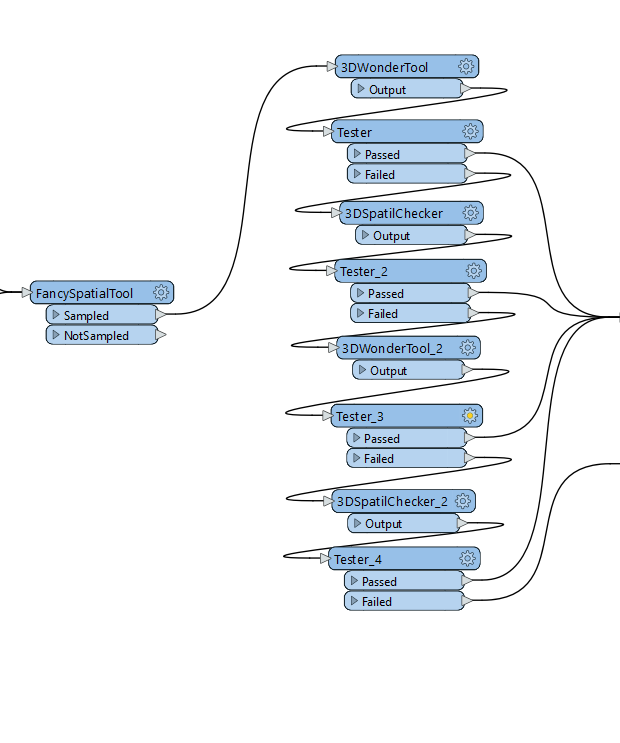We have implemented the warning when users connect to the Hub. (FMEDESKTOP-13650) This includes the following user actions:
- Opening a workspace with Hub Community content that you do not have downloaded on your machine
- Opening a .fpkg, .fmx, .fds, .fmwt from a file browser directly (which defaults to opening Workbench)
- Downloading a workspace from FME Server that has Hub Community content.
- Taking a download action from any place in Workbench while authoring (Workbench Quick Add, Transformer Gallery, Format Prompt, etc.)
This warning can be dismissed/skipped to not be shown again until a you upgrade FME Workbench to a major version, at which time it is re-asked.
Unfortunately, this means you have to wait for the 2023.0 release to take advantage of this new functionality. If you would like to disable the Hub from FME Workbench entirely to have complete control of what you are downloading, I would suggest blacklisting the FME Hub URLs in your network or firewall policy. Let us know if you have any other questions 🙂












